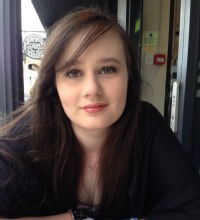Welcome to the WJETT blog
What is WJETT?
The WJETT blog or Warwick Journal of Education - Transforming Teaching blog is designed to encourage staff and students to disseminate good practice and to engage with their peers on academic cultural critique or areas of research that they find interesting. With the increased focus on ‘teachers as researchers’ in the sector, many qualified teachers are expected to publish the outcomes of any action research projects they undertake. The WJETT blog can be the first step on your journey towards publishing and enables you to experience publishing and reviewing in a friendly and supportive environment.
You will need to scroll down the page below the tags to see the posts.
Assessments: Capturing Lived Experience and Shaping the Future

This WIHEA funded co-creation project aimed to capture and explore student and staff perspectives on diverse assessment. Neither group were clearly able to define a diverse assessment strategy, but interestingly their feelings about assessment and ideas of how they can be improved were very similar. Students expressed a desire for greater choice, flexibility and equitable access to assessments. Equitable access encompasses a wide range of complex personal needs including language requirements, disability, neurodiversity, caring responsibilities, and the need to work alongside studies. Staff iterated many of the same concepts but framed their ideas around pedagogical models. There was a strong emphasis on learning from assessments on both sides and a widespread longing for a culture shift to design assessments that model a fair and fulfilling education. Student co-creation was seen as a necessary tool to expedite the shift towards embedding assessments as part of the learning journey.
I am a final year student on the Health and Medical Sciences BSc programme. My role as a student cocreator in this research project was to collect and analyse data from students and staff pertaining to their beliefs around assessment. In the analysis stage of the project, I mainly focused on collating and summarising the student data. I am new to conducting primary research and I have thoroughly appreciated this experience. I enjoyed the challenge of leading interviews and focus groups and deciding when to explore a statement further or manoeuvre back to the set questions. Gaining first-hand insight into the research process has augmented my ability to understand and extract key information from research papers which will be a life-long skill – and was particularly useful when I was conducting a systematic review for my dissertation. It has been very satisfying to observe my own personal development in this way.
This project has made me aware of my privilege in assessments as a neurotypical English speaker. I have been exposed to a range of different perspectives on assessment and I hope to be better equipped to identify problems and support those around me. For example, I was surprised to learn that international students feel more disadvantaged by multiple choice exams than essays, as MCQs often require a nuanced understanding of language and grammar. Similarly, I have always taken a pragmatic approach to assessments and centred my learning around them. I had not previously considered assessments as part of the learning journey or as a learning exercise. As I move into the next phase of my own education, I will try to extend my learning beyond assessments to gain knowledge that I can use in my profession. Undertaking this project has been an enriching experience as a student and as an individual. It has shaped my approach to my assessments, and I have become more aware of the complex needs of others who are completing the same assessment. Students and staff are calling for the same changes to assessment methodology, which can only be implemented if the University takes a holistic approach to restructuring assessments with students contributing to the process.
Writing guidance
Can I write about anything in my blog post?
Yes pretty much. Academic cultural critique (Thomson and Mewburn, 2013) is always a good source of content for academic blogs. This can include (but is not limited to) comments and reflections on funding; higher education policy or academic life. You might also want to consider blogging about:
- Academic practice (Saper, 2006)
- Information and/or self-help advice
- Technical, teaching and careers advice
- Your research or practice
- How you’ve undertaken research
- The impact of research on your practice
- An area of research/practice that interests you
- Your teaching experiences/reflections
How long can my blog post be?
Each individual blog post should be no longer than 500 words. Long blocks of text are sometimes hard for readers to digest. Break up your content into shorter paragraphs, bullet points and lists whenever possible. Also include a list of keywords or tags as this makes it easier for Google to find your work.
Do I need to use citations?
No, this is a reflective piece so it does not need to include citations (but you obviously can include them if they are relevant).
Can I include links or images?
We would encourage you to include links to any articles that you have considered whilst writing your blog post. We also welcome the use of images (as long as you have permission to use them) as they can often help to illustrate a point and obviously will not be included in the word limit. Please remember this is a public site so if you want to include images of your students in your classes then you will need permission to do this.
What is the process for submitting a piece of work?
Your blog post should be emailed to A.Ball.1@warwick.ac.uk. Once the submission has been reviewed it will either be uploaded at the beginning of the next available week or sent back to you for editing if it requires amendments. You should then send the amended work to me once again and I will then upload it.
